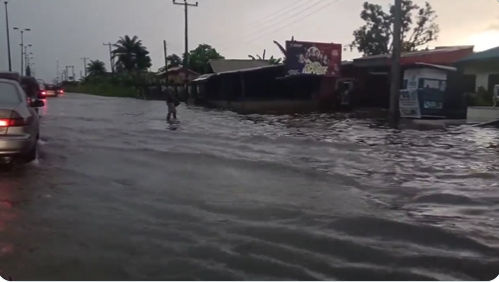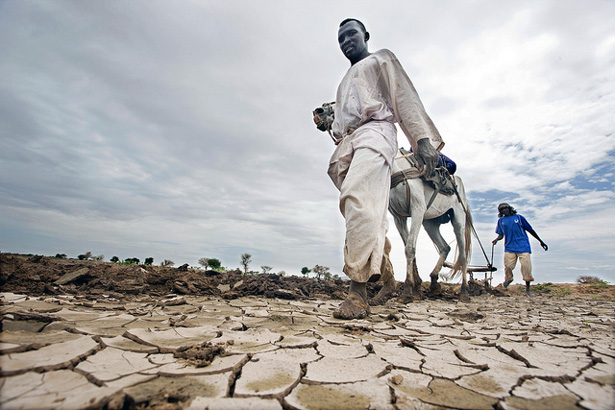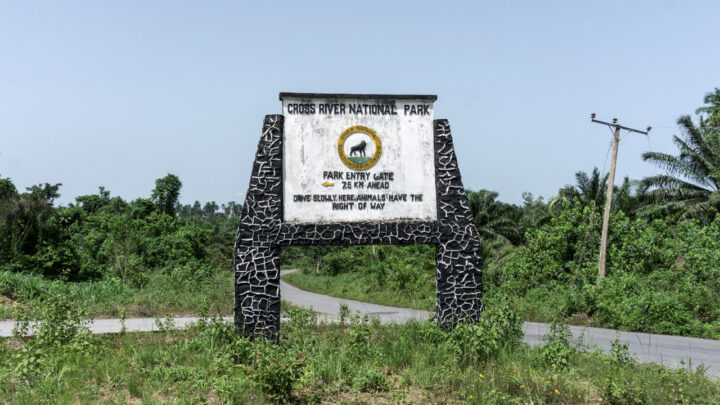Despite directly impacting our communities, health, and livelihood, climate-related reports usually take a back seat to dominant news beats like politics and business. Climate Watch aims to ensure you never miss important stories on climate change and actions being taken toward limiting its impacts.
Here is a round-up of last week’s climate stories:
- Ishaq Salako, minister of state for environment, on August 28, said the floods caused by the opening of the Lagdo dam in Cameroon would be less severe this year. Salako said the ministry has been alerting people who reside close to the River Benue banks to move to higher grounds. He added that President Bola Tinubu’s administration hopes to hasten the process of completing the alternative dam in Adamawa state to hold water when Lagdo is opened in the future. Read more here.
- Salako also said the ministry of environment now has a flood warning system that alerts people five days ahead of time. The minister said that the government recently set up a climate change council to assist other bodies on related issues. He added that having different bodies would ensure that climate change issues are not analysed from just one angle. Read more here.
- Last week, Joseph Utsev, the minister of water resources and sanitation, said flooding is not an immediate concern in the country. Utsev said reports from inland dams such as Kainji, Jebba, and Shiroro have shown a consistent flow, adding that there is no threat to lives and properties at the moment. The minister called on governments at all levels to intensify efforts to ensure preparedness and to limit flooding in the country. Find out more here.
- In a statement on August 27, the United Nations (UN) agencies called on the international community to include displaced persons in their nationally determined contributions (NDCs) and national adaptation plans (NAPs). The organisations said current NDCs and NAPs of countries do not have provision for IDPs. They said it is necessary to address the adaptation needs of vulnerable communities. The organisations said climate change is exacerbating displacements and could lead to the movement of 216 million people within their own countries by 2050. Find out more here.
- The Delta government, on August 27, asked residents in lowlands and flood-prone areas of the state to relocate to safer grounds. Festus Ahon, the chief press secretary to Sheriff Oborevwori, the governor of Delta, said the relocation became necessary following the opening of the Lagdo dam in Cameroon. Ahon said a 14-member flood disaster management committee has been set up to tackle the challenge of flooding in the state and provide relief materials to victims. Read more here.
- Meanwhile, Hassan Abubakar, the chief of air staff, said the air force has taken steps to address the security challenges caused by climate change in the country. Abubakar said climate change has intensified pre-existing factors that lead to conflicts and diminish peoples’ capacity to manage it. He added that the air force has adopted kinetic and disaster relief operations as well as green practices and technologies to address climate change. Read more here.
- The Adamawa state Emergency Management Agency (ADSEMA), on August 28, said five persons in different communities died as a result of flooding. Suleiman Muhammad, ADSEMA executive secretary, said several houses and infrastructure were swept away by the flood in Fufore, Yola south and Mubi south LGAs. Muhammad said that the agency is committed to managing emergency situations in the state, urging residents of high-risk areas to relocate to safer grounds.
- The Nasarawa government said it has approved the evacuation of residents living around the riverine communities in the state. Zachary Allumaga, director general, Nasarawa state Emergency Management Agency (NASEMA), said five speed boats have been allocated to flood-prone areas for the evacuation exercise. Allumaga said the evacuation is part of government efforts to mitigate the impacts of the impending flood. He advised residents of flood-prone areas to relocate to safer grounds to avert loss of lives and property. Read more here.
- While launching the 2023 tree planting campaign in Dungal village, Bauchi LGA, Bala Mohammed, governor of the state, said illegal felling of trees and charcoal businesses have been banned. Mohammed said the felling of trees has led to erosion and flooding in the state, adding that intensive efforts would be made to curtail the trend and protect the environment. Read more here.
- A recent study published in Energies revealed that a billion people could die from climate catastrophes over the next century or so. The researchers warned that roughly one billion poorer humans could be killed if warming reaches or exceeds 2°C this century. According to the study, warming of over 2 °C could cause natural climate feedback to get out of control and lead to human extinction. The study called for aggressive energy policies that would enable immediate and substantive decreases in carbon emissions which would prevent the anticipated loss of lives. Read more here.
- Yemi Osinbajo, former vice-president of Nigeria, said the Africa Climate Week and Summit would create investment opportunities in the continent. Osinbajo, who is the global advisor for the Global Energy Alliance for People and Planet (GEAPP), said the summit, scheduled to take place in Nairobi between September 4 and 6 would boost investments in clean energy and innovation in Africa. He said the collaboration between governments and stakeholders would drive sustainable economic development for the continent. Read more here.
- Japan and India recorded their hottest-ever temperatures this summer. The Japan Meteorological Agency (JMA) said the country had the highest average summer temperature since record-keeping began in 1898. Similarly, the India meteorological department (IMD) said August was the driest and hottest month ever recorded in the country since 1901. The IMD said four of the five hottest August mean temperatures were recorded in the last seven years as a result of extreme weather events. Also, the Met Office said that the United Kingdom (UK) experienced its eighth warmest summer since 1884. Find out more here.






